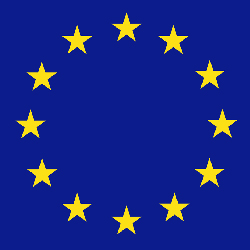Compliance
COMMENTARY: The AIFMD - The New European Regulatory Landscape Kicks In

Today is the date when managers of alternative investments such as hedge funds and private equity must have complied with sweeping European Union rules that came into force a year ago.
Today – 22 July – is the date when managers of alternative
investments such as hedge funds and private equity must have
complied with sweeping European Union rules that came into force
a year ago. In the intervening 12 months, the EU has offered
firms a year to get in shape. (There are alarming signs of
confusion in the industry about what still needs to be done, as
shown by this article.) Firms not fully authorised under the
Alternative Investment Fund Managers’ Directive could be in for a
nasty shock.
As the editor of Compliance Matters, Chris
Hamblin, explains here how the AIFMD, which has been
brought in to regulate the sector by EU policymakers, is designed
to reduce risks in financial markets. Some of those risks came to
the fore when markets crashed in 2008, although it is sometimes
complained that the regulations go way beyond what is required to
deal with a specific set of problems. An important test must
always be whether the end-investor is better or worse off in the
long run due to such legislation. Chris talks about hedge funds
specifically but the term “alternative” covers a wide field.
Compliance Matters is a sister publication to
this news service. We are keen to receive any comments from
readers about how AIFMD is affecting their business and how they
intend to react.
The number of managers that have successfully obtained, or are
currently applying for, AIFM authorisation, suggest that the
industry is prepared for considerable change. At its most basic,
the AIFMD hopes to reduce systemic risk and give investors more
protection against sharp practice than before, while the European
Union hopes to create a more level playing field. It will become
clear over time whether these goals are achievable, but we can be
certain that firms will find themselves in a new environment once
the deadline passes in July. An increase in regulation and the
guidelines that precede it bring many considerations to the fore,
and will have implications for the hedge fund sector.
At each hedge fund, compliance and risk management staff must
analyse their entire operation from a regulatory, legal,
compliance, operational and commercial perspective. With the
emphasis on change and understanding, as well as implementation,
it is apparent that compliance and risk management is set to have
a key role in the restructuring of AIFMs.
The most significant insurance change outlined in the directive,
as far as compliance and risk management people are concerned, is
featured in articles 12 and 15. Article 12 states that AIFMs must
hold “own funds” or professional indemnity insurance to cover
their professional liabilities. Under Article 15 the cover is
required to have an initial term of one year at a minimum, with a
notice period for cancellation by insurers of not less than 90
days. It is worth noting that some smaller alternative investment
funds, or AIFs, are exempt from such requirements under the
AIFMD. These are AIFs with assets under management (including
debt or “leverage”) that do not exceed €100 million ($135.2
million), or do not exceed €500 million when the portfolio is not
“leveraged”. Smaller AIFs also need have no redemption rights
during a period of five years following the date of initial
investment to be exempted.
In February this year, the UK's Financial Conduct Authority, the
UK regulator, provided “guidance” which described how to value
assets under management and announced that it would permit AIFMs
to value derivatives positions at market value for the purposes
of determining their capital requirements under the
directive.
Nobody knows whether the AIFMD will develop into an international
brand for alternative investments all over the world, but asset
managers are increasingly looking at the opportunities that it
can offer in terms of asset-raising through the “professional
investor passport” to ensure that they are not left trailing
behind their competitors by the end of this year. A fair number
of asset managers obtained their AIFM authorisations at the very
beginning of the “transitional period”, which ends today.